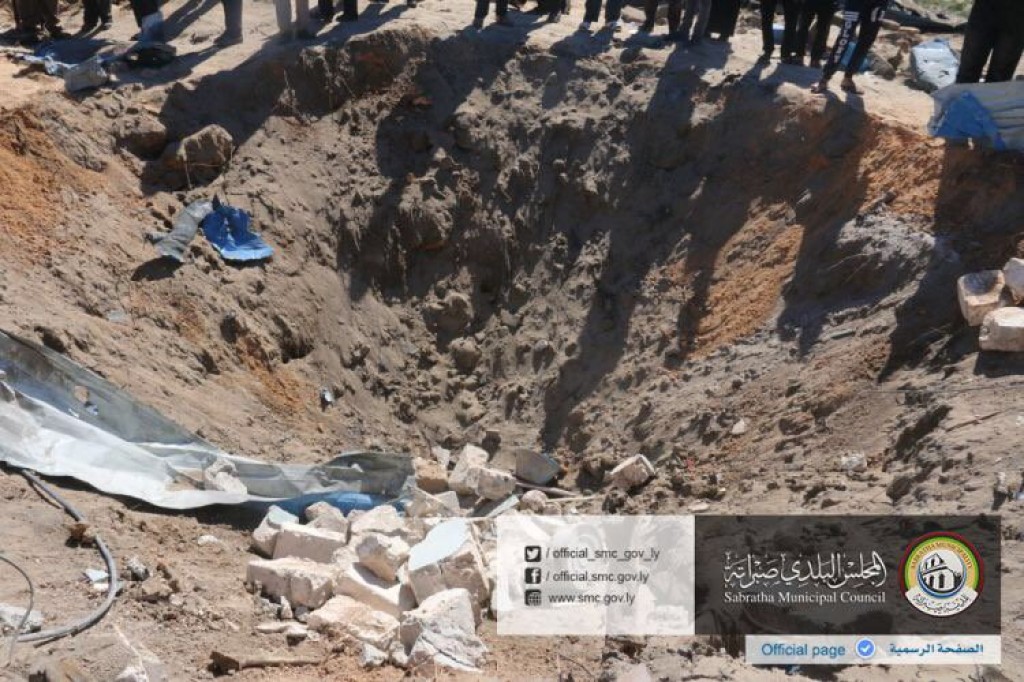U.S. Airstrikes on ISIS Camp in Libya Kill at Least 41
American warplanes bombed an Islamic State training camp in Libya early Friday, killing at least 41 people, most likely including a militant commander linked to attacks on Western tourists, in a strike that highlighted the widening gap between American military and diplomatic efforts in the region.
The airstrikes in Sabratha, a seaside town 50 miles west of Tripoli, targeted Noureddine Chouchane, a Tunisian militant linked to two major attacks on Western tourists in Tunisia last year. He had also facilitated the arrival of Islamic State recruits in Libya, the Pentagon said in a statement confirming the strikes.
Mr. Chouchane was probably killed in the strike, the Pentagon said.
Since June the United States has carried out at least three air attacks against Islamist commanders in Libya, usually with a view to preventing the Islamic State, also known as ISIS or ISIL, from using its expanding territory in the country as a springboard for attacks in the region, or on the West. The Sunni extremist group has been spreading into Libya from its bases in Syria and Iraq.
As elsewhere in the Middle East, the focus on fighting the jihadists with military force has been far more successful than American diplomatic efforts to end the tumult in each country that allowed the jihadists to prosper in the first place.
In Libya, the West has thrown its weight behind a troubled United Nations-led initiative to bring the country’s warring factions into a unity government. In Syria, a combination of airstrikes by the United States and its allies as well as military support for fighters on the ground has weakened the jihadists, undermined their finances and caused them to lose territory.
Friday’s airstrikes come at a time of Western alarm at the dramatic expansion of the Islamic State in Libya, where the group has snatched control of 150 miles of coastline and attacked the oil facilities that account for most of the country’s wealth.
“The last thing in the world you want is a false caliphate with access to billions of dollars of oil revenue,” the American secretary of state, John Kerry, warned in a meeting of the 23-nation coalition against the Islamic State in Rome on Feb. 2.
For weeks, America and allied Western officials have mulled a possible air campaign against the Islamic State in Libya, particularly around the town of Surt.
Libyan officials and news media outlets have reported the presence of American, French, British and Italian Special Forces units in the country in recent weeks, apparently usually on reconnaissance missions and to liaise with local militias.
For now, the Obama administration has said that it will limit its military operations in Libya to narrow counterterrorism strikes, such as the one on Friday, that aim to degrade the Islamic State’s ability to use Libya as a base for attacks in other countries.
In June, an American airstrike targeted the Algerian militant Mokhtar Belmokhtar, while another in November killed Abu Nabil, also known as Wissam Najm Abd Zayd al Zubaydi, an Iraqi who led the Islamic State’s arm in Libya.
Mr. Chouchane, the commander targeted on Friday, was accused of helping to organize an attack on the National Bardo Museum in Tunis that killed 22 people in March and another in June that killed 38 people at a beach in the coastal resort in Sousse. He was one of five fugitives for whom the Tunisian Interior Ministry issued arrest warrants after the museum attack.
Yet the Islamic State has continued to expand across Libya, underscoring what diplomats say is the importance of pushing Libya toward a political settlement of its multifaceted civil war. The country’s political leaders are currently divided between two loose political alliances centered on rival parliaments in the capital, Tripoli, and the eastern city of Tobruk.
http://mobile.nytimes.com/2016/02/2...ews&referer=http://international.nytimes.com/



